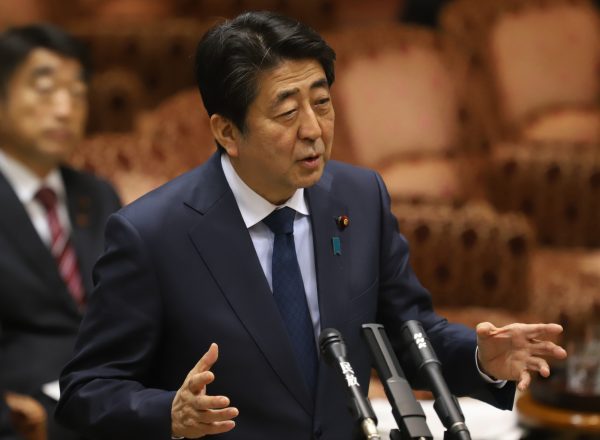Despite his eagerness, the constitutional amendment that would include revising Article 9 is becoming a bridge too far for Abe, especially given that his time in office is entering its final stretch.
Abe’s willingness to complete the constitutional revision is well known. He has been a vocal advocate of the cause throughout his political career. Granting the JSDF full constitutionality has been a consistent goal since the LDP released its proposal for constitutional revision in April 2012, even though other proposed changes have been abandoned due to public resistance.
But there are several major challenges to Abe reaching his goal before he completes his term as Prime Minister in late 2021.
The LDP’s coalition partner Komeito has not signed onto the revision. To start the consultation with Komeito — and allow LDP members to take the discussion back to their own electorates — the party released four proposed constitutional revisions in March 2018: Article 9, the definition of ‘national emergencies’, the electoral structure of the Upper House of the Diet, and education.
But a year later, the consultation to finalise the language for the revisions has not started. This stems from Komeito’s apparent discomfort with the proposed language for the Article 9 revision. Inability to get Komeito on board with the LDP’s plan will delay Abe’s government in formally introducing the revision proposal for the Diet’s consideration. The prospect of Abe’s government even introducing the draft constitution amendment to the Diet is uncertain.
Abe may also have too much on his plate between now and the end of his term to get to the constitutional amendment. He has two major elections to win in 2019 — the unified regional election in April and the Upper House election in July.
The Abe government is also slated to raise the consumption tax from the current 8 per cent to 10 per cent in September 2019. There are also several major international events that his government must host successfully. These include the G20 Summit in June, the Rugby World Cup in September–November, and the celebration for the Imperial Succession from April to October.
Even if Abe manages all these major events successfully, the 2020 Tokyo Olympics will likely consume the political capital that he has left at the end of 2019. Given the series of major domestic and international events that await Abe over the next 18 months, he may have little political capital to push the constitutional amendment through the Diet.
Even if Abe can get Komeito to sign on to the LDP’s constitutional revision proposal and get it through the Diet, he may not have enough public support. According to an opinion poll conducted in April 2018 (shortly after the LDP released its proposed language for the constitutional revision including those for Article 9), close to 70 per cent of respondents believed the government should prioritise addressing other issues. Even among the respondents who identified themselves as LDP supporters, over 50 per cent believed that issues other than the constitutional revision need to be prioritised.
All these factors point to an inconvenient truth for Abe — regardless of his determination, he may have neither the time nor public support necessary to pursue the constitutional amendment in the remainder of his term. Despite consistently making pragmatic policy decisions since he returned to power in December 2012, Abe has not been able to shake off his image as a right-wing political figure who wants to make a clear departure from Japan’s post-war history as a peace-loving nation. The constitutional revision may be one item that is better off being left for Abe’s successor to address.
Yuki Tatsumi is Co-Director of the East Asia Program and Director of the Japan Program at the Stimson Center in Washington, DC. She also concurrently serves as non-resident Senior Fellow at the Canon Institute for Global Studies in Tokyo.

